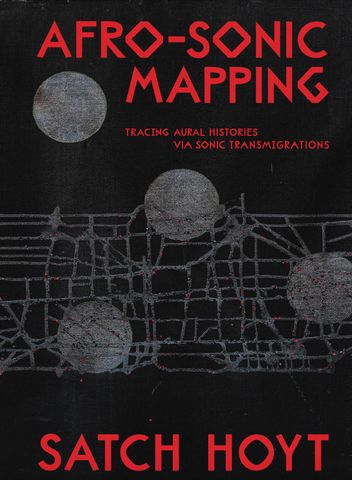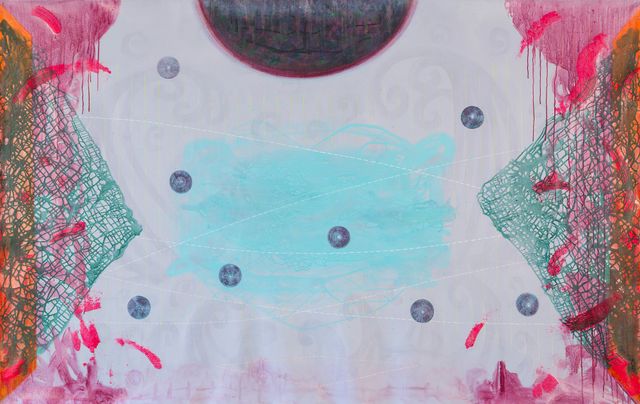Afro-Sonic Mapping
Tracing Aural Histories via Sonic Transmigrations

Edited by Paz Guevara, Satch Hoyt, Haus der Kulturen der Welt
Archive Books, 2022
240 pages, English
100 images, bound
ISBN 978-3-948212-57-5
Price: €20
Available at bookstores, mail order buying / postal shopping via the Webshop
How to un-mute colonial sound archives and reconnect them with diasporic memories? The publication reunites the outcomes and further reflections of the Afro-Sonic Mapping project realized by the artist and composer-musician Satch Hoyt. The chapters of the book present Hoyt’s unique approach of unpacking the colonial narrative from a sonic perspective: Un-muting Sound Archives, Counter Journey, Sonic Cartographies and Aural Histories. Hoyt’s counter-method includes the unmuting of the first recordings made in the Kongo region in the early twentieth century, which are housed in the Berlin Phonogram-Archiv. By taking those recordings back to the geographical location and then to the African Diaspora within the Lusophone trajectories, the Afro-Sonic Mapping is an act of sonic restitution. The book brings together the collaborations with artists and theoreticians across Luanda, Salvador da Bahia and Lisbon and at the exhibition at HKW with its program of talks and concerts. By transmiting the multiple voices and the shift of perspective involved in the Afro-Sonic Mapping, the publication reconnects practitioners of the lusophone triangle within the broader context of authors, artists and musicians that have been tracing aural histories and sonic transmigrations. Through various genres, from blog posts and interviews, through lyrics to essays, the publication is relevant for readers interested in the politics of sonicity. The publication contributes to the discussion of unsettling and de-colonizing archives, while offering a mapping for a counter-journey.
With contributions by Anselm Franke, Satch Hoyt, Paz Guevara, Louis Chude-Sokei, Sofia Lemos, Fred Moten, Greg Tate, Jihan El-Tahri, Kiluanji Kia Henda, MC Sacerdote, Khris, Suzana Sousa, Benjamin Sabby, ÀRÀKÁ collective, Alberto Pitta, Denise Ferreira da Silva and Rui Vieira Nery.
